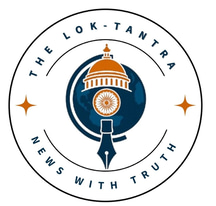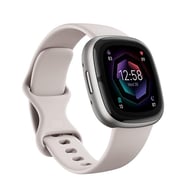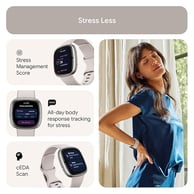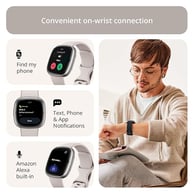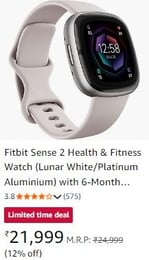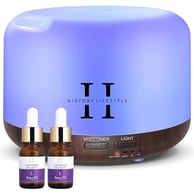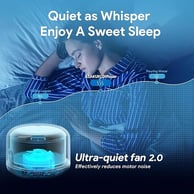In an age where the pace of life is ever-accelerating and digital overload is a daily reality, anxiety has become one of the most pressing mental health concerns worldwide. According to the World Health Organization (WHO), over 301 million people globally suffer from an anxiety disorder—and those numbers are on the rise. As we step deeper into 2025, managing anxiety effectively requires a blend of evidence-based practices, lifestyle adaptations, and technological innovations.
Whether you're facing generalized anxiety, social anxiety, or occasional stress spikes, there are modern techniques grounded in science and psychology that can help restore calm and balance. Here’s a detailed exploration of the most effective anxiety management strategies that work in 2025.
Understanding Anxiety in the Modern Age
Before diving into techniques, it’s important to understand what anxiety really is. Anxiety is a natural response to stress—a survival mechanism meant to alert us to danger. But in today’s society, where threats often come in the form of tight deadlines, social media pressure, or financial insecurity, this response can become chronic and maladaptive.
In 2025, the sources of anxiety are more multifaceted than ever:
Constant connectivity & information overload
Post-pandemic residual stress
Work-life imbalance in remote/hybrid settings
Climate anxiety and global instability
AI and automation-related job insecurity
Effective anxiety management today demands more than a one-size-fits-all approach—it requires personalization, self-awareness, and access to the right tools.
1. Mindfulness-Based Cognitive Therapy (MBCT) 2.0
MBCT, a powerful blend of cognitive therapy and mindfulness practices, has undergone a digital transformation in 2025. This technique helps individuals become more aware of their thought patterns and respond to stressors with clarity rather than reactivity.
What’s New in 2025:
AI-guided meditation apps that personalize sessions based on heart rate variability (HRV) and facial expression recognition.
Immersive VR mindfulness experiences that simulate calming environments like forests or ocean waves.
Neurofeedback-enhanced meditation to reinforce calm brain states in real-time.
> Pro Tip: Apps like Calmind and Syncthink now use AI to adapt your mindfulness routine dynamically, giving real-time suggestions based on your anxiety levels.
2. Exercise as Medicine (RxE)
The antidepressant-like effect of regular exercise is well-established, and 2025 takes it further by tailoring movement regimens based on genetic profiles and metabolic responses.
What Works:
Zone 2 cardio (low-intensity steady-state) to regulate cortisol and improve mood.
Strength training 3–4 times per week to enhance resilience and boost serotonin.
Movement snacking—short bursts of exercise throughout the day to counteract sedentary routines.
Innovations:
Wearables with real-time stress tracking (e.g., Fitbit Sense 2, WHOOP 5.0) now nudge users to move when cortisol spikes.
AI trainers create anxiety-sensitive workout plans to avoid burnout or overexertion.
3. Nutritional Psychiatry & Gut-Brain Optimization
In 2025, the link between gut health and anxiety is no longer speculative—it’s central to treatment protocols. The microbiome affects neurotransmitter production, especially Serotonin, 90% of which is made in the gut.
Key Nutritional Strategies:
Prebiotic-rich foods (e.g., garlic, onions, leeks) to feed good bacteria.
Probiotic supplementation with strains like Lactobacillus rhamnosus and Bifidobacterium longum.
Omega-3 fatty acids to reduce systemic inflammation and support brain function.
Magnesium, B vitamins, and L-theanine for calming the nervous system.
2025 Tools:
At-home gut testing kits with AI diet personalization (e.g., Viome 3.0).
Mood-boosting meal plans tailored by wearable nutrition monitors.
4. Cognitive Behavioral Therapy (CBT) – AI Assisted
CBT remains one of the gold standards for anxiety treatment, but now, it's faster, smarter, and more accessible than ever.
How It’s Changed:
Chatbot therapists trained on real patient data and CBT frameworks provide real-time cognitive restructuring tools.
Augmented CBT journals that auto-categorize and reflect on thought patterns using natural language processing.
CBT via telehealth and the metaverse allows immersive sessions with licensed therapists globally.
Noteworthy Platforms:
Wysa, Woebot, and Therachat have integrated AI-CBT workflows that mimic human therapists with remarkable precision.
5. Natural and Holistic Approaches
In parallel with clinical methods, many individuals turn to holistic solutions that align body and mind.
Top Methods in 2025:
Adaptogens like ashwagandha, rhodiola, and holy basil to balance cortisol levels.
Aromatherapy with precision blends using machine-sensed scent diffusion (e.g., lavender + neroli for calm).
Acupuncture and acupressure wearables that stimulate calming meridian points discreetly.
Forest bathing (shinrin-yoku) in urban green zones, with studies confirming reduced amygdala activity post-immersion.
6. Personalized Anxiety Management with Digital Biomarkers
2025 is the era of hyper-personalized wellness. With AI and biometrics, individuals can now manage anxiety based on their unique physiological and neurological profile.
How It Works:
Real-time cortisol detection via smart rings and biosensors.
Heart rate variability (HRV) analysis to determine stress thresholds.
AI health coaches that recommend micro-interventions (like breathwork or hydration reminders) before anxiety escalates.
7. Digital Detoxing and Tech-Life Boundaries
One of the greatest sources of anxiety today is tech fatigue. Setting digital boundaries is no longer optional—it’s essential for mental health.
Practical Tips:
Use 'Focus Modes' and smart blockers to limit social media exposure.
Schedule email & screen-free hours, especially before bed.
Invest in e-ink devices or minimalist phones to reduce dopamine-driven scrolling.
Pro Tip: The 'Digital Sabbath' trend—24 hours unplugged weekly—is gaining momentum among wellness influencers and neuropsychologists alike.
8. Community, Connection, and Support
In 2025, loneliness is considered as harmful to health as smoking 15 cigarettes a day. Human connection remains one of the most powerful buffers against anxiety.
Connection Strategies:
Support groups (online & IRL) focused on specific anxiety types (e.g., social, health, performance).
Group therapy via VR and telepresence platforms that replicate face-to-face interaction.
Purpose-driven social apps (e.g., "Circles") built for deeper friendships, not doom-scrolling.
Final Thoughts: The Future of Anxiety Management
Anxiety may be a universal experience, but managing it doesn’t have to be overwhelming. The good news is that in 2025, we have more tools, science, and support than ever before.
What works best is often a hybrid approach:
Grounded in clinical therapies
Personalized with biometric data
Enriched by natural remedies
Empowered through community and mindfulness
The key is consistency over perfection. Even a few small, intentional steps daily can compound into lasting peace of mind.
Actionable Checklist
✔ Try a guided VR mindfulness session
✔ Swap one coffee a day for calming herbal tea
✔ Incorporate 20 minutes of movement into your routine
✔ Schedule a digital-free hour each evening
✔ Track your sleep and mood patterns
✔ Reach out—connection is medicine
